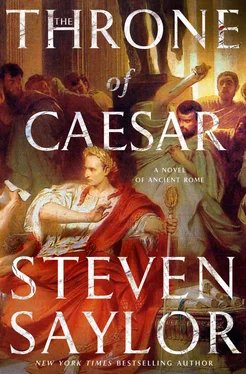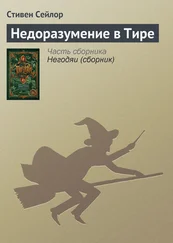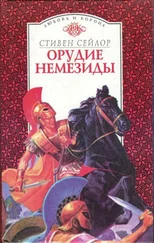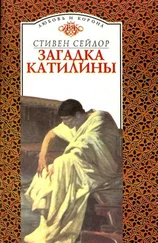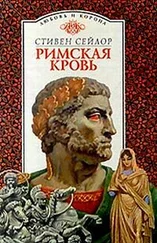Стивен Сейлор - The Throne of Caesar
Здесь есть возможность читать онлайн «Стивен Сейлор - The Throne of Caesar» весь текст электронной книги совершенно бесплатно (целиком полную версию без сокращений). В некоторых случаях можно слушать аудио, скачать через торрент в формате fb2 и присутствует краткое содержание. Год выпуска: 2018, Издательство: St. Martin's Press, Жанр: Исторический детектив, на английском языке. Описание произведения, (предисловие) а так же отзывы посетителей доступны на портале библиотеки ЛибКат.
- Название:The Throne of Caesar
- Автор:
- Издательство:St. Martin's Press
- Жанр:
- Год:2018
- ISBN:нет данных
- Рейтинг книги:5 / 5. Голосов: 1
-
Избранное:Добавить в избранное
- Отзывы:
-
Ваша оценка:
- 100
- 1
- 2
- 3
- 4
- 5
The Throne of Caesar: краткое содержание, описание и аннотация
Предлагаем к чтению аннотацию, описание, краткое содержание или предисловие (зависит от того, что написал сам автор книги «The Throne of Caesar»). Если вы не нашли необходимую информацию о книге — напишите в комментариях, мы постараемся отыскать её.
The Throne of Caesar — читать онлайн бесплатно полную книгу (весь текст) целиком
Ниже представлен текст книги, разбитый по страницам. Система сохранения места последней прочитанной страницы, позволяет с удобством читать онлайн бесплатно книгу «The Throne of Caesar», без необходимости каждый раз заново искать на чём Вы остановились. Поставьте закладку, и сможете в любой момент перейти на страницу, на которой закончили чтение.
Интервал:
Закладка:
“After King Cinyras kills himself, and Zmyrna flees. She finally drops from exhaustion, and Venus at last takes pity on her—”
“And the poor girl feels a change come over her, yes.” Cinna narrowed his eyes. “Shall I recite the final verses to you?”
“I came here hoping you would.”
Cinna summoned a slave and whispered in the man’s ear. The slave vanished—off to fetch us some wine I thought, mistakenly.
Cinna opened his mouth and began to speak.
XXIV
I had never heard anything like it.
I wouldn’t have recognized Cinna’s voice. Reciting his verses, it became a musical instrument of extraordinary range upon which the suffering of Zmyrna was conveyed to the very depths of my being. To hear Meto read the poem aloud, and to read passages aloud myself, had been a heady undertaking. But to hear the poet himself recite its climax was an experience of an altogether different magnitude, far more wrenching and powerful than I had expected.
Having fled to the ends of the earth, and having reached the end of her mortal existence, Zmyrna does not die. By the mercy of Venus she is spared from both the unbearable misery of life and the equally unbearable shame of a confrontation with the shade of her father in the underworld. Some parts of her body stiffen. Other parts stretch. She expands in one place and contracts in another. In her transformed state, she begins to give birth to the child conceived with her father.
The baby breaks from her womb—no longer a womb of flesh and blood but a cavity of wood that splits and splinters as the baby emerges. With her eyes, the last vestige of her humanity, Zmyrna beholds the child Adonis, perfect in every part, destined to become even more beautiful than his father, the only mortal who could ever break the heart of Venus herself—and thus avenge his parents on the cruel goddess.
Zmyrna weeps. But even as she weeps, her eyes are transformed, and the tears she sheds are not of water and salt, the tears of a woman, but the tears of a tree, a kind of sap—but a sap like no other. When burned, it exudes a fragrance unique in the world, which bewitches all who smell it—the smell of myrrh, the tears of Zmyrna.
As she loses the last shred of her humanity, Zmyrna’s thoughts are of her father.
“Father, I’d have kissed your mouth a thousand times before I fled—
But never will you know our child or see the tears I shed.”
As Cinna recited the last words of the poem, I actually smelled burning myrrh. The hallucination was startling, a genuine act of magic achieved with words alone—or so I thought. Davus, who sat as spellbound as I, must also have smelled it, for he let out a small gasp as the sweet, musky odor permeated the room.
The slave dispatched by Cinna had been instructed not to fetch wine but to bring a censer charged with myrrh, then to stand just out of sight and set the substance aflame as his master spoke the word “myrrh” aloud.
The experience—the final verses of the poem, the revelation of Zmyrna’s fate, the actual smell of myrrh in the room—was exquisite beyond words. Davus bowed his head and began to weep. Cinna gazed at the hulking, shivering figure in the chair beside me, and smiled. We sat in silence for a long moment, as the slave gently fanned the censer and sent thin streamers of fragrant smoke wafting among us.
“But … what did the poor girl do … to deserve such a fate?” Davus said haltingly, covering his face to hide his tears.
“He doesn’t know the rest of the poem?” Cinna arched an eyebrow.
“Davus was elsewhere, fast asleep, while Meto and I read to each other.”
“Yet see what an effect even the last few verses have on him,” said Cinna quietly. “And you doubt that I can write an epic fit for Caesar? ”
“If I doubted before, I doubt no longer,” I said.
“Do forgive that bit of stagecraft at the end. I always finish any public reading of the Zmyrna with a pinch of burning myrrh. The audience is invariably enchanted. Well, then…” He leaned back and crossed his arms. “You’ve known the two of us—you’re perhaps the only man alive who can make such a claim. Which of us is the greater poet?”
“Do you mean…?”
“I do. Antipater of Sidon or Gaius Helvius Cinna?” He gave me a piercing look.
“Your power to compel my honesty will do you no good in this case, Cinna. How could I possibly choose between two poets so unalike? You’re not just of different generations. Your poems are in different languages. How could I compare your Latin and his Greek? It’s not just pointless, but impossible.”
“Ha! I thought I could force an answer from you. But you deflect the question, and for reasons entirely valid. I say, Gordianus, does the big fellow often weep like this?”
After a brief respite of dabbing his eyes and wiping his nose, Davus had begun to weep again. “I can’t help it,” he muttered. “So sad … so beautiful…”
“By all means, weep!” Cinna leaned forward and touched Davus’s arm. “You pay me the highest compliment, to be moved to an emotion beyond your control. Your tears are more precious to me than pearls. If I could string them on a necklace, it would be valuable beyond reckoning.”
We sat for a while without speaking, while the poet basked in the tears of my son-in-law.
“And you, Gordianus? What did you think of the poem?” asked Cinna.
I spoke slowly, carefully choosing my words. “You make a great deal of the extraordinary beauty of Cinyras, and the power it exercises over his daughter—”
“Only because she’s been smitten by Cupid, at Venus’s behest.”
“So Cinyras is blameless. All fault lies with the women—first with Queen Cenchreis, who blasphemes against Venus by claiming her daughter is more beautiful; then with Venus, who takes offense and craves vengeance; then with Zmyrna, who burns with a secret passion for her father; then with the nurse, who conceives a sordid plot to bring them together; and finally with Zmyrna again, who acts on her mad passion, carries out the scheme … and drives her father to suicide.”
Davus, finally done with weeping, wiped his nose with the back of his hand and cocked his head. “What sort of story is this?”
“A story of long ago and far away,” said Cinna, “which is invariably the setting for any tale in which mortal men and women attain the utmost lineaments of gratified desire. You make an interesting point, Gordianus. But you omit the fault of King Cinyras.”
“But he was duped. He’s blameless.”
“Is he? The man betrays his wife, and for what? The chance to sleep with some nameless girl the same age as his daughter. Is there not some part of the man that desires to copulate not with a facsimile but with the daughter herself? And in the groping darkness, does he not imagine it’s Zmyrna in his arms?” He saw the frown on my face and nodded slowly. “You see, Gordianus, I have given some thought to the deeper meanings of my poem. I did spend nine years writing it!”
“But then … Zmyrna acts knowingly. She wants it, invites it, enjoys it. Cinyras acts unknowingly—”
“But invites it, enjoys it.”
“And both are punished quite horribly.”
“Yet something beautiful comes of their union—the child Adonis. And from Zmyrna’s agony come the tears of sweet-smelling myrrh.”
“A strange tale,” I said.
“But a haunting one.”
“Upon which you chose to lavish your talent. Of all the tales you might have recounted, this is the one you chose to make immortal.”
“You flatter me, Gordianus. Only time will tell if the Zmyrna is immortal.”
“How could it not be?” I said, and meant it. “Someday I hope you’ll recite the whole poem to me, from start to finish.”
Читать дальшеИнтервал:
Закладка:
Похожие книги на «The Throne of Caesar»
Представляем Вашему вниманию похожие книги на «The Throne of Caesar» списком для выбора. Мы отобрали схожую по названию и смыслу литературу в надежде предоставить читателям больше вариантов отыскать новые, интересные, ещё непрочитанные произведения.
Обсуждение, отзывы о книге «The Throne of Caesar» и просто собственные мнения читателей. Оставьте ваши комментарии, напишите, что Вы думаете о произведении, его смысле или главных героях. Укажите что конкретно понравилось, а что нет, и почему Вы так считаете.
